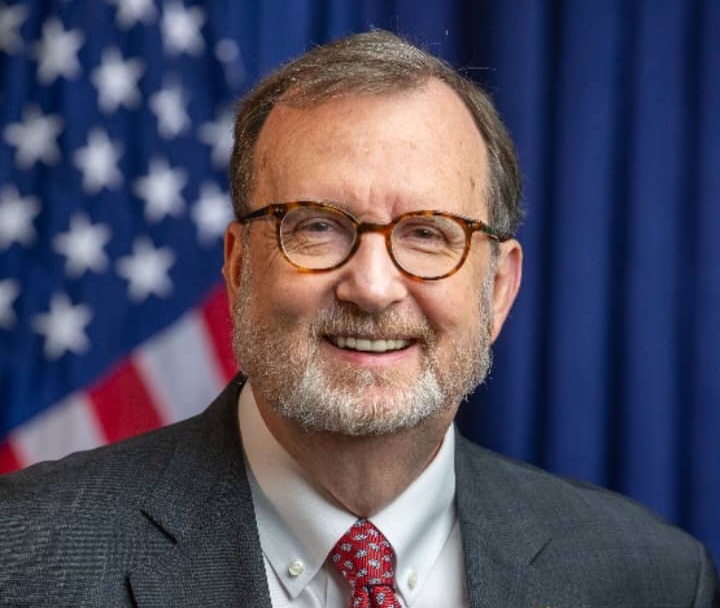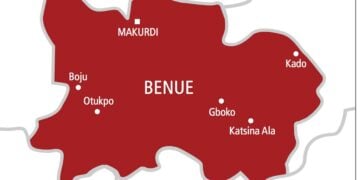The United States has firmly denied any claims that its foreign assistance to Nigeria has been diverted to Boko Haram, reiterating its commitment to counter-terrorism efforts in the country.
Speaking to journalists after a meeting with the Nigeria Governors’ Forum (NGF), US Ambassador to Nigeria, Richard M. Mills, Jr., on Wednesday night in Abuja dismissed concerns that American aid may have been misused or fallen into the hands of the terrorist group.
Recall that a US Congressman, Scott Perry had accused the United States Agency for International Development (USAID) of funding global terrorist groups like the Islamic State of West Africa Province (I SWAP), and al-Qaeda, including their local affiliates such as Boko Haram in Nigeria.
He had said that the US aid agency funded terrorist organisations including Boko Haram.
Perry, a Republican representing Pennsylvania, made the claim during the inaugural hearing of the Subcommittee on Delivering on Government Efficiency last week.
However the US ambassador to Nigeria dismissed the claims. “There is absolutely no evidence that I have seen that US assistance funding has been diverted to Boko Haram,” he stated.
The ambassador emphasised that strict policies and oversight mechanisms are in place to prevent any misappropriation of funds. “Whether it comes from USAID, the Department of Defense, or the State Department, our assistance programmes are closely monitored to ensure they are not exploited by terrorist groups,” he explained.
According to him, the US government has designated Boko Haram as a foreign terrorist organisation since 2013, a move that enables Washington to block the group’s financial transactions, arrest its members, and enhance intelligence-sharing with Nigeria.
Ambassador Mills reassured that the United States remains a steadfast partner in Nigeria’s fight against terrorism.
“If we ever had evidence that funding was being diverted to Boko Haram, we would immediately investigate alongside our Nigerian partners,” he added, reinforcing Washington’s commitment to ensuring that US aid reaches its intended recipients.
“We stand with Nigeria in the fight against Boko Haram and remain committed to helping the country rid itself of this scourge,” Ambassador Mills affirmed.
Addressing concerns about US assistance to Nigeria, the ambassador clarified that while the new US administration has implemented a 90-day pause on foreign assistance, no cuts have been made.
“This is not about ending foreign aid to partners like Nigeria, but about making it more effective and aligned with US government policies,” he said.
He reassured Nigerians that life-saving assistance—such as support for HIV patients, child nutrition, and aid for internally displaced persons—will continue under special waivers, stressing that the final decision on the future of US assistance will be made after the 90-day review period.
The ambassador also outlined four key priorities for US-Nigeria relations. These priorities, he said, will guide US engagement with Nigeria in the coming years.
Ambassador Mills emphasised the need to improve the business environment to encourage greater trade and investment between both nations.
“We want to see more trade between the United States and Nigeria, with more investment on both sides,” he said.
The second priority, he noted, is a renewed focus on transparency and accountability in governance, with the US supporting Nigerian voices advocating for reforms.
“We want to fight corruption and empower those calling for more transparency,” he added.
The US government is also keen on strengthening engagement at the subnational level by working more closely with state and local governments.
Ambassador Mills pointed out that Nigeria’s evolving governance structure, including a Supreme Court ruling that could grant local governments greater fiscal authority, presents an opportunity to provide capacity-building support.
“We believe that the most effective government is the one closest to the people,” he explained.
The final area of focus is the sustainability of US-supported healthcare programmes in Nigeria.
Ambassador Mills highlighted the success of initiatives such as HIV/AIDS treatment and polio eradication, but stressed the importance of transitioning these programmes to full Nigerian government control.
“We want to ensure these programmes remain sustainable and effective as they are handed over at both the federal and state levels,” he said.











